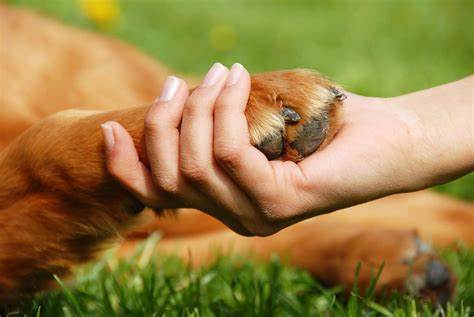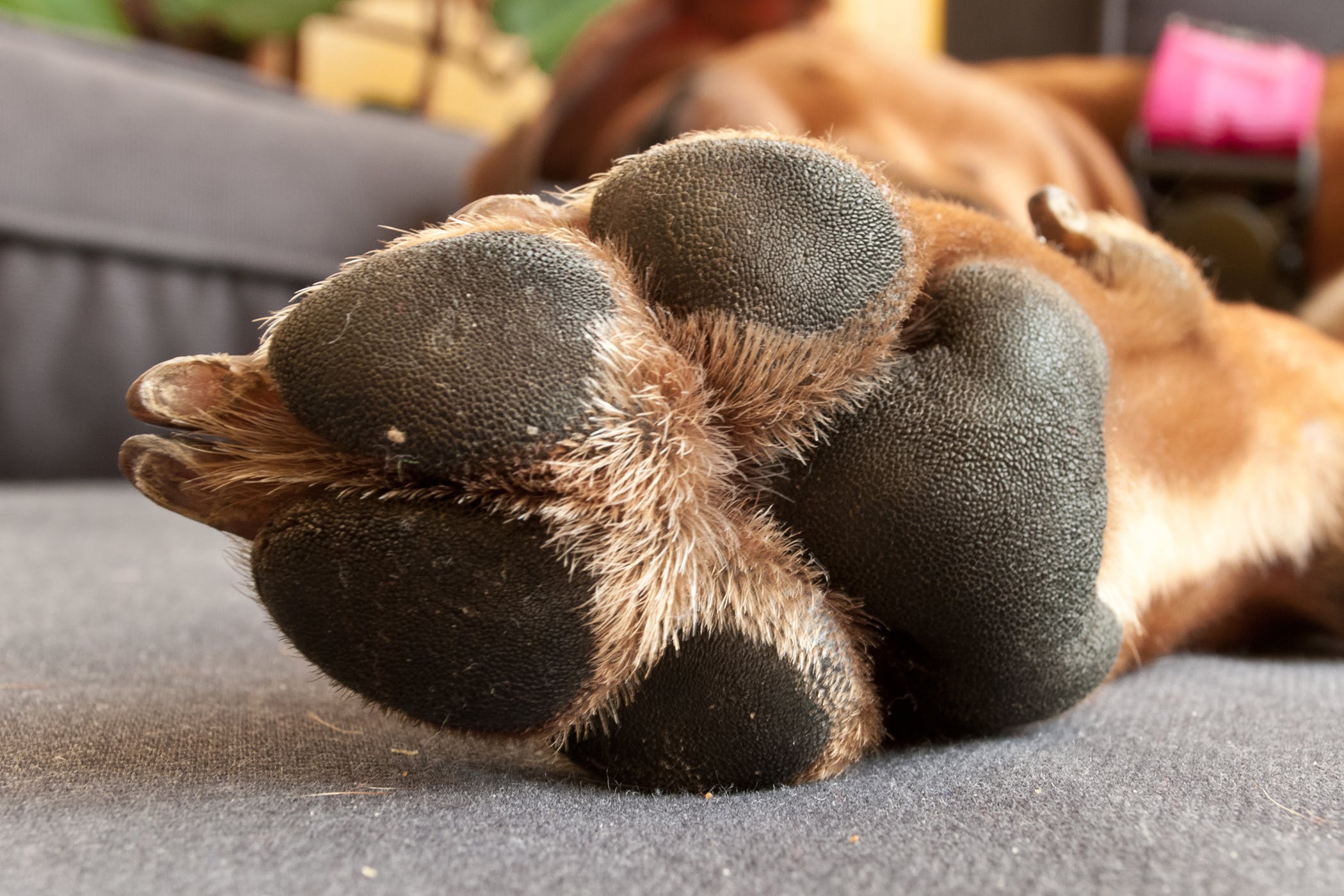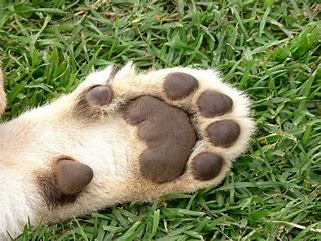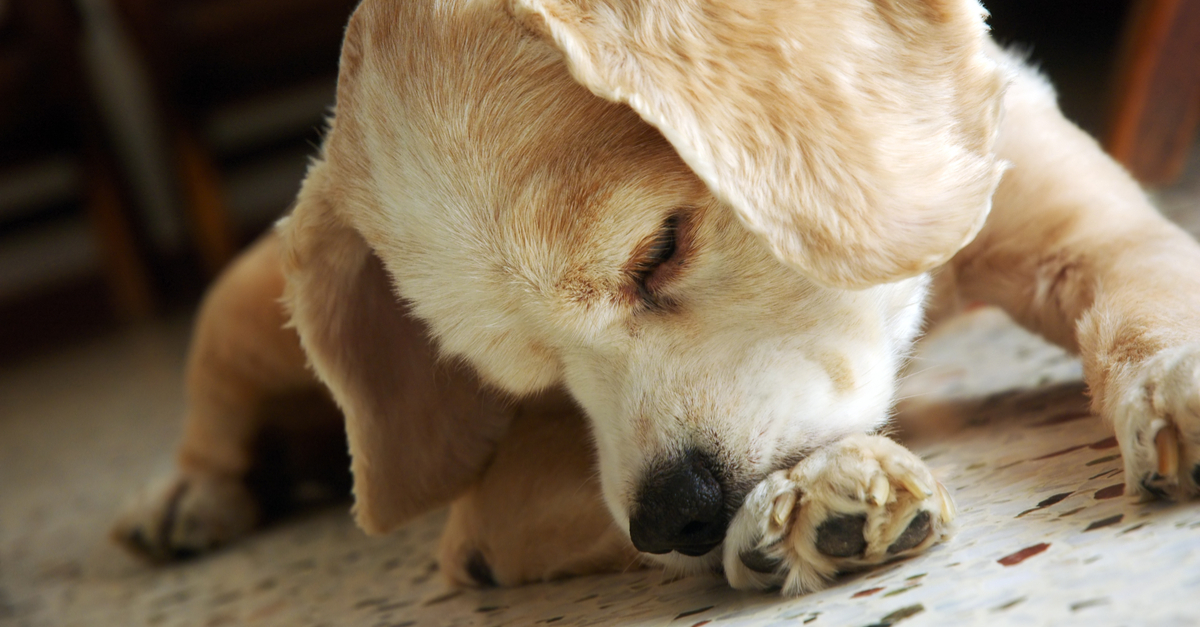As pet owners, we always strive to ensure the well-being of our beloved dogs. However, it can be concerning and puzzling when we notice unusual behaviors like excessive paw biting. If your dog is biting his paws, it’s essential to understand the potential reasons behind this behavior and how to address it appropriately. In this comprehensive guide, we will explore various factors that may contribute to your dog’s paw biting tendencies and provide helpful insights to help you manage this issue effectively.
Allergies and Skin Irritations
One of the primary reasons dogs bite their paws is due to allergies or skin irritations. Dogs can be allergic to various environmental factors, including pollen, dust mites, mold, or certain types of food. Additionally, they may develop contact dermatitis from coming into contact with certain plants, chemicals, or grooming products. These allergies and irritations can cause itchiness and discomfort, leading your dog to bite or chew their paws as a means to alleviate the itch.
Parasites
Fleas, ticks, and other parasites can cause intense itching and irritation for your dog. When these pests bite or burrow into the skin, it triggers an inflammatory response that can lead to constant scratching and paw biting. Regular preventive measures such as flea and tick treatment can help prevent infestations and minimize the risk of your dog suffering from itchy paws.

Dry Skin
Just like humans, dogs can also experience dry skin. Dry or flaky skin can be caused by factors such as low humidity, allergies, or underlying health conditions. When their paws become dry and itchy, dogs may resort to biting or licking them in an attempt to relieve the discomfort.
Anxiety and Stress
Dogs may exhibit self-soothing behaviors, including excessive paw biting, when they are anxious or stressed. Separation anxiety, fear of loud noises, changes in the household, or traumatic experiences can all contribute to heightened anxiety levels in dogs. If you suspect that anxiety or stress is the underlying cause of your dog’s paw biting, it’s important to address the root cause and provide appropriate behavioral and environmental support.
Boredom and Excess Energy
Dogs are active animals that require mental and physical stimulation. When they become bored or have excess energy, they may resort to destructive behaviors such as paw biting. Regular exercise, interactive toys, and engaging activities can help redirect their energy and provide them with appropriate outlets for their natural instincts.
Underlying Medical Conditions
In some cases, persistent paw biting may be a symptom of an underlying medical condition. Conditions such as arthritis, joint pain, or nerve disorders can cause discomfort in your dog’s paws, leading them to bite or chew as a response. If you suspect that an underlying medical condition is the cause of your dog’s paw biting, consult with your veterinarian for a thorough examination and appropriate treatment options.

Managing Paw Biting Behavior
To effectively manage your dog’s paw biting behavior, consider the following strategies:
- Consult with Your Veterinarian: If you’re unsure about the cause of your dog’s paw biting or if the behavior persists despite your efforts, consult with your veterinarian. They can help identify any underlying medical conditions and provide appropriate treatment options.
- Address Allergies and Irritations: If allergies or skin irritations are the culprit, your veterinarian may recommend allergy testing or dietary changes to identify and eliminate the allergens from your dog’s environment. They may also prescribe medications or topical treatments to alleviate itching and discomfort.
- Regular Grooming and Paw Care: Regular grooming practices, including bathing with pet-friendly shampoos and brushing, can help maintain healthy skin and coat. Pay attention to your dog’s paws, keeping them clean and free from debris. Additionally, consider using pet-safe moisturizers or paw balms to prevent dryness and cracking.
- Provide Mental and Physical Stimulation: Engage your dog in regular exercise routines tailored to their breed and energy levels. Incorporate interactive toys, puzzle feeders, and training sessions to provide mental stimulation and keep your dog occupied.
- Create a Calm Environment: If anxiety or stress is the underlying cause, create a calm and safe environment for your dog. Establish a routine, provide a cozy den-like space, and consider using calming aids such as pheromone diffusers or anxiety wraps.
- Training and Behavior Modification: Work with a professional dog trainer or behaviorist to address any underlying behavioral issues. Positive reinforcement training techniques can help redirect your dog’s attention and provide them with alternative behaviors to replace paw biting.
Remember, each dog is unique, and it may take time and patience to identify and address the specific cause of your dog’s paw biting. By understanding the potential reasons behind this behavior and implementing appropriate management strategies, you can help your dog find relief and improve their overall well-being.



